BuySellBA
Administrator
Coworking without brakes: why renting workspaces continues to boom, costs, and reasons for its use - Ambito Financiero

Source:
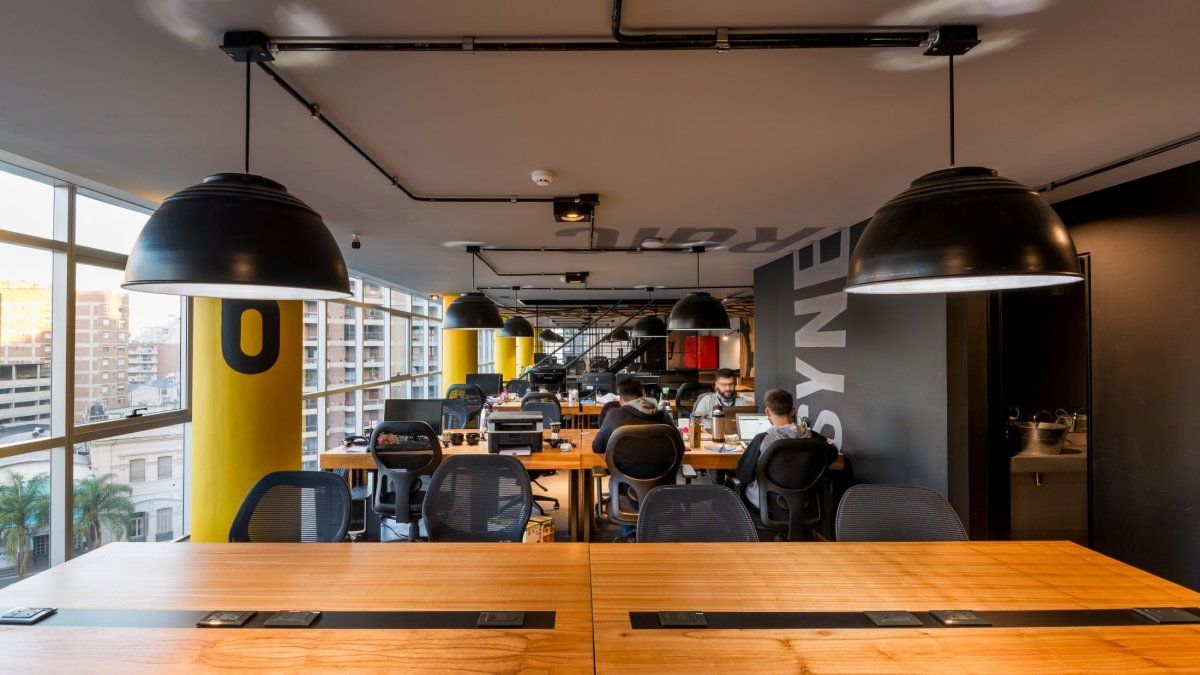
 www.ambito.com
www.ambito.com
July 19, 2025
By Jose Luis Cieri
Demand for shared spaces grew after the pandemic. Why companies and professionals choose them, their costs, and their role as office spaces.
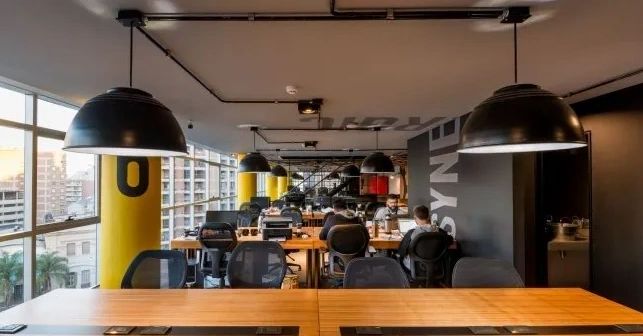
The expansion of flexible spaces in Buenos Aires is consolidating. Changes in work habits are driving the use of coworking.
Coworking has ceased to be a marginal format for freelancers and startups and has established itself as a strategic option in the world of work. Its growth accelerated with the pandemic, when the demand for flexible , agile, and low-commitment solutions became essential. Today, independent professionals, SMEs, and large companies choose these spaces to set up shop, expand, or test new markets without the fixed costs and rigidities of a traditional office contract.
The numbers confirm the trend. In Buenos Aires and major cities across Argentina, the coworking space offering has diversified, offering options for all profiles: from individual desks for a single day to private offices for teams of several dozen people. The pandemic transformed the way we work, consolidated the hybrid model, and triggered the search for well-located spaces with thoughtful design, included services, and a community.
“At HIT, coworking isn't just a space: it's a way of seeing and experiencing work. We don't believe in rigid structures or long-term contracts. We believe in adapting to the pace of each team,” explained Julieta Cumbo , Growth Marketing Manager at HIT. The company offers flexible plans for different formats: desks for a day, private offices for large teams, or memberships for use across multiple locations.
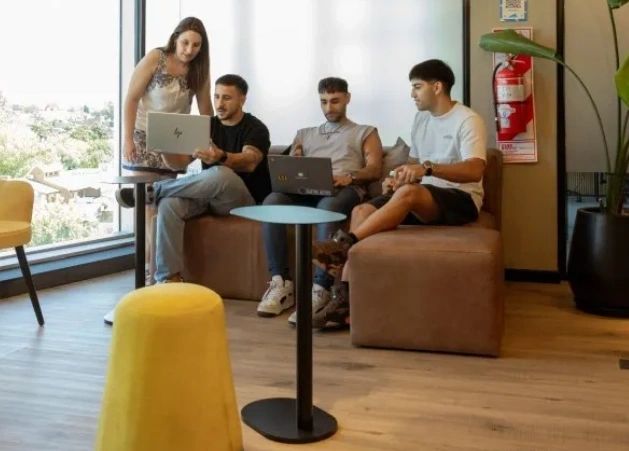
Coworking offers a more relaxed and productive way of working, while the hybrid model is still in force.
At HIT, they emphasize that their audience ranges from freelancers to large corporations. “Today, we're chosen by sales teams, innovation departments, startups, scaleups, and SMEs. They're looking for a work experience that combines flexibility with structure, community with privacy, and an environment that empowers people,” Cumbo remarked.
This experience is also supported by a calendar of events, content, and activities to foster the professional community. Wellness, 24/7 access, on-site cafes, and green spaces complete the offering.
La Maquinita consolidated its federal growth with seven locations across the country: Palermo SoHo, Microcentro, Vicente López, Córdoba, Rosario, Quilmes, and Núñez. They also added the Innovation Lab in Palermo for events, recordings, webinars, and hackathons (collaborative development meetings).
"We offer flexible work solutions that adapt to each individual or team: from freelancers who want to get out of the house to companies with hybrid work arrangements or digital nomads. What sets us apart is the creation of real connections in comfortable and modern spaces," said Otero.
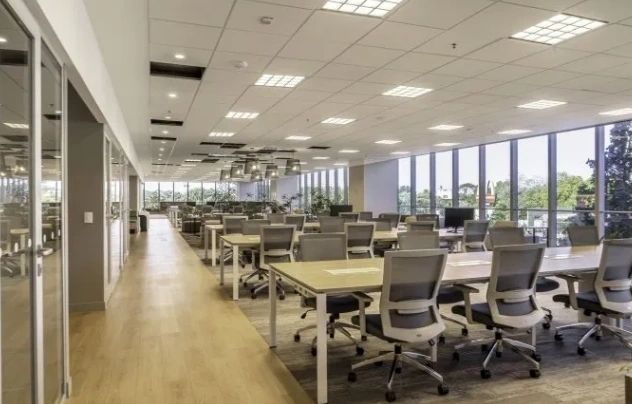
Modern, bright, and well-equipped workspaces are vital. They can be rented by the day, week, or month.
The user profile also changed after the pandemic. Before COVID-19, the audience was stable and rarely renewed. Today, the community is larger and more diverse. More than 800 companies use its headquarters, from startups to teams from large companies that choose a hybrid model.
"Many companies have understood the value of coworking as a tool to attract and retain talent. It's no longer just an initial stage: it's a smart and attractive solution for teams that want convenience, culture, and community without the costs of their own office," said Otero.
According to Stange, the most common profile is startups, professional studios, freelancers, and expanding companies. They all value the ability to set up quickly, with low investment and flexible contracts. Large companies also use this format for specific projects or satellite teams close to clients or key areas.
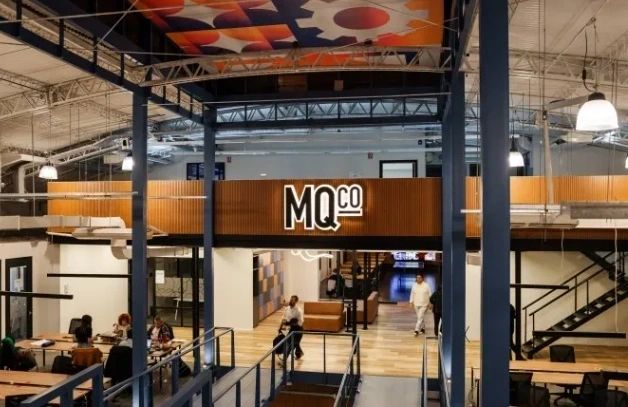
It is a format that grew during the pandemic, sometimes companies or professionals start with coworking, and then move on to renting their own offices
“After the pandemic, coworking has established itself as an alternative to home offices for those seeking human connection, collaboration, and belonging, without sacrificing flexibility. Many users prioritize well-being, location, community, and the ability to access spaces that align with their work culture,” he explained.
In Latin America, growth is linked to digitalization, the need to operate without long-term commitments, and the demand for affordable and well-located solutions. "Coworking responds effectively to this," Stange analyzed.
La Maquinita offers prices starting at $44,000 plus VAT per individual space, with access to all common areas and networking activities. In general, coworking spaces aim to simplify hiring and eliminate hidden costs, offering monthly or quarterly plans without demanding guarantees or setup fees.
In contrast, a traditional corporate office requires greater commitments. According to market data, in Buenos Aires, rent for a category A office averages US$22 per square meter plus VAT and expenses in areas like Palermo or Núñez, and around US$12 in the Microcentro.

“We seek to offer labor freedom,” said Julieta Cumbo, of HIT
“At HIT, many companies don't leave; they evolve within the same ecosystem. They start with shared desks and migrate to private offices within HIT, without losing community or benefits,” Cumbo emphasized.
La Maquinita offers a similar approach. Otero emphasized that its system allows for budget optimization and streamlined use of space based on needs. Freelancers can hire from part-time, while companies have multi-year plans. "Our goal is to always adapt," he emphasized.
Stange explained that as companies mature, they often require more privacy, brand control, and personalized conditions. At that point, the transition to a traditional office is a natural fit. “We see coworking as a breeding ground for future users in the corporate market,” he stated.

It is ideal that spaces are also available for group presentations.
“Work has changed. It's no longer about going to the office, but about finding spaces that add value, inspire, and adapt,” Cumbo stated. Otero added that his focus is on opening locations where demand requires them and offering experiences that go beyond a desk.
For Stange, the key is to combine both worlds. “Coworking and the traditional office are not mutually exclusive. They function as complementary models for different stages and needs. The idea is to think of ecosystems that provide tailored solutions,” he concluded.
www.buysellba.com

Source:

Coworking sin freno: por qué el alquiler de espacios para trabajar sigue en auge, costos y razones de su uso
La demanda de espacios compartidos creció tras la pandemia. Por qué empresas y profesionales los eligen, sus costos y su rol como antesala de oficinas.
July 19, 2025
By Jose Luis Cieri
Demand for shared spaces grew after the pandemic. Why companies and professionals choose them, their costs, and their role as office spaces.

The expansion of flexible spaces in Buenos Aires is consolidating. Changes in work habits are driving the use of coworking.
Coworking has ceased to be a marginal format for freelancers and startups and has established itself as a strategic option in the world of work. Its growth accelerated with the pandemic, when the demand for flexible , agile, and low-commitment solutions became essential. Today, independent professionals, SMEs, and large companies choose these spaces to set up shop, expand, or test new markets without the fixed costs and rigidities of a traditional office contract.
The numbers confirm the trend. In Buenos Aires and major cities across Argentina, the coworking space offering has diversified, offering options for all profiles: from individual desks for a single day to private offices for teams of several dozen people. The pandemic transformed the way we work, consolidated the hybrid model, and triggered the search for well-located spaces with thoughtful design, included services, and a community.
“At HIT, coworking isn't just a space: it's a way of seeing and experiencing work. We don't believe in rigid structures or long-term contracts. We believe in adapting to the pace of each team,” explained Julieta Cumbo , Growth Marketing Manager at HIT. The company offers flexible plans for different formats: desks for a day, private offices for large teams, or memberships for use across multiple locations.
Flexibility as a key
The central feature of coworking spaces is flexibility. Instead of long-term contracts, the offerings are tailored to each user's specific needs. They can be rented for a day, a week, or years. In addition to desks, most spaces include meeting rooms, call rooms, break areas, a kitchen, and a cafeteria. The service is typically all-inclusive, with high-speed internet, cleaning, and basic services taken care of.
Coworking offers a more relaxed and productive way of working, while the hybrid model is still in force.
At HIT, they emphasize that their audience ranges from freelancers to large corporations. “Today, we're chosen by sales teams, innovation departments, startups, scaleups, and SMEs. They're looking for a work experience that combines flexibility with structure, community with privacy, and an environment that empowers people,” Cumbo remarked.
This experience is also supported by a calendar of events, content, and activities to foster the professional community. Wellness, 24/7 access, on-site cafes, and green spaces complete the offering.
Community and federal expansion
Juan Manuel Otero , CEO of La Maquinita Co., emphasized that the change in the way we work has driven the expansion of coworking in Buenos Aires and other cities. "Today, people are looking for flexibility, community, design, a good location, and everything in one place," he explained.La Maquinita consolidated its federal growth with seven locations across the country: Palermo SoHo, Microcentro, Vicente López, Córdoba, Rosario, Quilmes, and Núñez. They also added the Innovation Lab in Palermo for events, recordings, webinars, and hackathons (collaborative development meetings).
"We offer flexible work solutions that adapt to each individual or team: from freelancers who want to get out of the house to companies with hybrid work arrangements or digital nomads. What sets us apart is the creation of real connections in comfortable and modern spaces," said Otero.

Modern, bright, and well-equipped workspaces are vital. They can be rented by the day, week, or month.
The user profile also changed after the pandemic. Before COVID-19, the audience was stable and rarely renewed. Today, the community is larger and more diverse. More than 800 companies use its headquarters, from startups to teams from large companies that choose a hybrid model.
"Many companies have understood the value of coworking as a tool to attract and retain talent. It's no longer just an initial stage: it's a smart and attractive solution for teams that want convenience, culture, and community without the costs of their own office," said Otero.
The vision of the corporate real estate market
For Mariana Stange , owner of Mariana Stange Real Estate, coworking functions as a complement to the traditional approach. “It's a flexible, quick-to-use shared office model that allows access to equipped spaces without the need for an initial investment. It's a very flexible alternative, especially in the early stages of projects or when space is needed for a limited time,” she explained.According to Stange, the most common profile is startups, professional studios, freelancers, and expanding companies. They all value the ability to set up quickly, with low investment and flexible contracts. Large companies also use this format for specific projects or satellite teams close to clients or key areas.

It is a format that grew during the pandemic, sometimes companies or professionals start with coworking, and then move on to renting their own offices
“After the pandemic, coworking has established itself as an alternative to home offices for those seeking human connection, collaboration, and belonging, without sacrificing flexibility. Many users prioritize well-being, location, community, and the ability to access spaces that align with their work culture,” he explained.
In Latin America, growth is linked to digitalization, the need to operate without long-term commitments, and the demand for affordable and well-located solutions. "Coworking responds effectively to this," Stange analyzed.
Average costs and prices
Prices vary depending on location, amenities, and space type. HIT offers options starting at $100 per space per month, with all-inclusive services: internet, cleaning, security, access to meeting rooms, cafeteria, and community.La Maquinita offers prices starting at $44,000 plus VAT per individual space, with access to all common areas and networking activities. In general, coworking spaces aim to simplify hiring and eliminate hidden costs, offering monthly or quarterly plans without demanding guarantees or setup fees.
In contrast, a traditional corporate office requires greater commitments. According to market data, in Buenos Aires, rent for a category A office averages US$22 per square meter plus VAT and expenses in areas like Palermo or Núñez, and around US$12 in the Microcentro.
From coworking to the traditional office
Coworking doesn't necessarily replace the corporate office: for many, it's the first step. Young or expanding companies use these spaces to grow without committing to long contracts or costly investments. As they consolidate their teams, they often migrate to their own or custom-built offices.
“We seek to offer labor freedom,” said Julieta Cumbo, of HIT
“At HIT, many companies don't leave; they evolve within the same ecosystem. They start with shared desks and migrate to private offices within HIT, without losing community or benefits,” Cumbo emphasized.
La Maquinita offers a similar approach. Otero emphasized that its system allows for budget optimization and streamlined use of space based on needs. Freelancers can hire from part-time, while companies have multi-year plans. "Our goal is to always adapt," he emphasized.
Stange explained that as companies mature, they often require more privacy, brand control, and personalized conditions. At that point, the transition to a traditional office is a natural fit. “We see coworking as a breeding ground for future users in the corporate market,” he stated.
The future of coworking
Beyond the current situation, experts agree that coworking has consolidated its position as part of the corporate real estate ecosystem. Its flexibility is attractive in times of economic uncertainty and for companies seeking to attract talent with hybrid or remote solutions.
It is ideal that spaces are also available for group presentations.
“Work has changed. It's no longer about going to the office, but about finding spaces that add value, inspire, and adapt,” Cumbo stated. Otero added that his focus is on opening locations where demand requires them and offering experiences that go beyond a desk.
For Stange, the key is to combine both worlds. “Coworking and the traditional office are not mutually exclusive. They function as complementary models for different stages and needs. The idea is to think of ecosystems that provide tailored solutions,” he concluded.
www.buysellba.com

